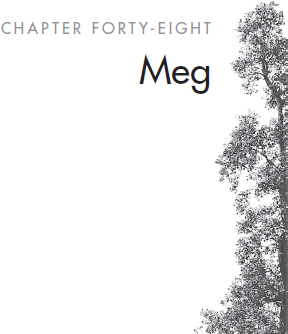Rosemary had never been a Baptist, but there was some connection with the sister who was tasked with organising something. A brother-in-law—the tall, thin husband of a woman whose children sat quietly either side of her in the front pew—delivered the eulogy. He described Rosemary with clear, kind words, but they were pencil drawn when she was full of colour.
‘Always up for a laugh,’ he said, but he didn’t mention that she laughed loud and often with her head tipped back, and feathers in the lines around her eyes; or that she found the brightest humour in the simplest things.
‘Bubbly,’ he called her, but he didn’t tell how her words embraced you as she spoke, and made you feel as if she’d rather be with you than anybody else. He didn’t tell how she was always ready to join in, and take a turn, and be herself, and never once expected any less from you.
‘Young,’ yes, but there was glitter in her youth, lift in her step, a future in her eyes.
‘She loved life,’ he said, but she loved so many other things as well. She loved tawny frogmouths and carrot cake. She loved thunderstorms, and romance novels, and Richard Gere; the camphor smell of kitchen cupboards, and the brush of velvet. She put her boots on the table and bare feet in puddles. She was the top hat when she played Monopoly, never took the last biscuit or the first, walked under ladders and left food out for possums. Her favourite colour was green.
There were more than a hundred mourners, according to the Courier. I recognised some of the women she’d worked with who’d come to her birthday party. I knew Mr Breadsell, Theresa from the Pink Fig, Catherine and Sergeant Scanlan, Leonie and Nola and Joanna. There were more strangers than friends, but Eddie drew strength from their handshakes, their pats on his shoulders, and the cappuccino froth of words that bubbled on their lips.
The hole in the park had been dug already and a silver wattle sat beside it in a fat little mound of soil. We stood in a loose ring around it while the pastor read a passage from the Bible.
‘There is a time for everything, and a season for every activity under the heavens …’
Three men lowered the young tree into the ground, but Eddie held the shovel and helped scoop the soil in and around it, and it was Eddie alone who trod it flat.
‘A time to tear down and a time to build, a time to weep and a time to laugh, a time to mourn and a time to dance.’
Who would Eddie go on to dance with? I wondered, and I may have stared too long at the women who stood alone, their fingers interlaced, heads bowed and eyes closed in prayer—or maybe only wondering whether they had time enough for a sandwich before they were expected back at work.
Rosemary’s mother left as soon as the Bible snapped shut. Leonie took her arm and offered soft, sad words that might have made another stay awhile, but red lips mouthed, Too late. Too late for a drink. Too late for lunch on Carney’s deck. Too late to rekindle a friendship that was nothing now but brittle sticks and ash. There was no room for Leonie in the life Joanna had carved for herself in Melbourne. There would have been new friends, old friends after a while, but it was too late for Leonie to be either.
If I ever saw Rosemary again, I willed there to be warmth between us still and not the frost that hung smoke-white and crystal-cold between Joanna and Leonie. The water passed, a river frozen solid. There would be no skating, no holding hands, no spring thaw. The mill would not turn again. It was hard to imagine a time when they might have known each other’s thoughts and habits and told each other everything (but not everything).
Eddie came between them and slipped his arm around his mother’s waist.
‘I’ve a plane to catch,’ Joanna told him. She gave him a limp hug, then she crossed Lakeview and stepped out of the heels she wore and into the car she’d hired. There was no backward glance. No smile or wave. She pulled out and disappeared into thin traffic.
Others followed. Street parking began to clear, and those on foot trailed like ants towards the pub, reappearing on the deck that overlooked the lake with pints of beer and glasses of wine, in twos and threes and fours until they spread into a colony of cheers and chatter.
I stared across the park towards the bench the Rotary Club had paid for and cemented by the path. They called it Mrs Carney’s bench, and a plate there marked her time and task and suggested she was buried underneath, but I knew she lay in an unmarked plot outside St Anthony’s cemetery. They had considered moving her, but in the end they’d let her be, and that was just as well, I thought; she had been through enough.
Her fields were empty now and the bench was empty too, bleached to bone away beyond the geese and reeds, and standing in the sharp light of that late morning I decided that the stone Rosemary had cast would skip and travel. Shadows would lengthen, times would change, Mrs Carney’s plaque would smooth to wordlessness, and the little tree just blessed would grow, but I would not be there to see it.
A time to be born and a time to die, a time to plant and a time to uproot.
It was my time.
